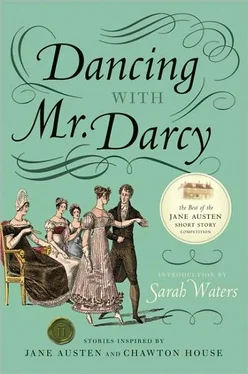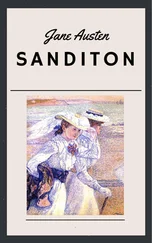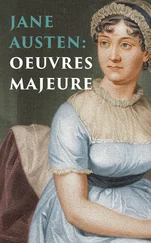Now, watching the burning bushes and frozen lakes, listening to the signs and portents that issued from her television screen, Miss Campbell began to think that the end of the world might after all be precipitated by something other than a plague. By extreme weather, perhaps: melted ice caps, fire and brimstone, a black sun.
She spent the morning boxing atlases and encyclopaedias. The building she’d worked in for fifteen years had closed its doors, and they had three days in which to stock the new library. Someone came into the reference room and called out, ‘Miss Campbell, you here?’ She popped her head out from behind the shelf and bumped into Angela from reception.
‘Oh. I’ve a caller asking for the head librarian, but Matt’s at a conference. He wants to know when he can set up those PCs in HeadSpace—’
‘HeadSpace?’
‘You know, the new zone for teenagers. He just needs to confirm an installation slot.’
Oh yes, the room Matt wouldn’t let her order any books for. Some grand scheme of his to ‘raise the footfall’ of young people.
‘Very well, I’ll speak to him.’
She took the phone and confirmed a time on Thursday.
‘Great. So they’ll be up and running ahead of the launch,’ Angela said.
‘Indeed.’
Miss Campbell found it hard to be enthusiastic. She’d hoped to stay on at the library another eight years, until retirement, but her role was changing so fast. Once, her job had been to share her love of books. Not any more. Books, actual physical books made of paper, were becoming a rarity, something to be tucked away in forgotten corners.
That lunchtime she came across a skip in the car park filled with old library hardbacks. Matt had enquired about stock disposal the other day. ‘Generally we donate,’ she said, but he told her, ‘There’s additional costs attached and we’re over budget on the move.’ She spent her lunch break standing on a chair, reaching into the skip to fish out books worth saving. Then she ferried them down the road to Oxfam. It seemed churlish given how much the council was spending, but Miss Campbell couldn’t help it: she was going to miss the old library.
The day of the move coincided with a day’s annual leave booked months ago. For weeks Miss Campbell had looked forward to this trip. She was taking an evening class on the early novel, and a visit to a library of early women’s writing was part of her studies.
Fresh snow had fallen and it glittered on the ground like a Christmas card. The train travelled back in time as swiftly as it raced through frozen fields and copses, until it reached a station whose platforms held no cafés, only painted wooden shelters and matching footbridges. The last stop: the end of the line.
Miss Campbell consulted her map and picked her way down the high street and through the small town, avoiding icy patches and lumps of trodden snow. When she reached the grounds of the house, the whole area was warm and dry. A meadow stretched snow-free and golden into the distance, and a man loaded bales of hay into the loft of a barn as if she’d happened on a small unseasonable patch of summer.
She rang the bell, signed in, climbed the uneven wooden steps and knocked on the library door. A simple room. Books, wooden desks, lamps. A concentrated silence that she longed to bottle and unleash in her own library.
She requested The Last Man.
It was an early edition bound in three volumes. Leather edged, with marbled covers and a matching box. She slid the books out, noting that in 1826 the name Mary Shelley still did not appear. By then Percy had been dead a few years and her married name might have helped sales, but the credit was to ‘The Author of Frankenstein’. She placed the top book on the foam reader. It opened on the first page.
‘Hear you not the rushing sound of the coming tempest? Do you not behold the clouds open, and destruction lurid and dire pour down on the blasted earth? See you not the thunderbolt fall, and are deafened by the shout of heaven that follows its descent? Feel you not the earth quake and open with agonising groans, while the air is pregnant with shrieks and wailings – all announcing the last days of man?’ [1] The Last Man, by The Author of Frankenstein (Mary Wollstonecraft Shelley), Henry Colburn: London, 1826. A copy of this edition is held in the collection at Chawton House Library.
Miss Campbell rose from her seat in alarm. What if this passage from the third volume had revealed itself to her as a warning? A sign. Yes, that was it. The signs were here, but no one could read them. No one wanted to read them.
She hurried to the window, searching for what? A thunderbolt, a quake, a tempest? She half expected to watch the lawn rip asunder, but still it stretched away from the house, green and sunny.
She stood at the window as others had stood before her, going back four centuries. Even before the house existed, local thanes had lived in this area; and before them, Romans, drawn by a warmth they missed from the south.
She breathed deeply.
These ancient words, which might have filled her with terror had she read them alone in her flat at night, were not ready to come true just yet.
Miss Campbell returned to her seat, and to her work. The day passed swiftly, the sun racing across the south lawn to disappear behind the trees. She looked back as she closed the gate; the last light bathed the house and filled the air around it.
On the walk to the station the magic of bygone centuries receded. People on the high street did the same kind of thing people in Balham did — bought naan bread or focaccia, fruit or meat, wine or beer, as they wended their way home. On the train back to the city the sky closed over, a lid slammed on the world.
Descending the steps into the Underground, Miss Campbell was hit by its rich dirty stink. Metallic yet animal. A smell she’d not noticed this morning, it was so long since she’d breathed clean air.
That night she settled in front of her 1973 typewriter and began to type. Earlier she had put off this task, because how can you reduce a person to a few pages, a life and its work to five thousand words? Somehow she felt less wary of her subject now. Spurred on by the noisy rattle of the Golfball, she wrote of Mary Shelley’s dark loneliness; her struggles as a single parent; her visions of the end of the world, penned a hundred and fifty years before this typewriter was manufactured, and set another century beyond that in 2073.
‘Like Frankenstein and horror,’ Miss Campbell wrote, ‘The Last Man was conceived before science fiction was a genre, before others trod accepted paths into these strange new worlds. Before leaps in time became pedestrian. Mary Shelley’s vision of the future was very different from the one we have today. It had no place for gadgets such as the sonic screwdriver or the improbability drive…’
She typed far into the night, aware and yet unaware of time passing, pausing, rewinding, forwarding.
The following day the computers arrived, and by eleven Miss Campbell was in HeadSpace with the man who had come to install them. Matt, too, was there to see his vision take shape.
‘Fantastic, isn’t it?’
‘I suppose.’
‘You don’t sound so sure.’
‘It’s just, we could fit thousands of books in this space, do you know?’
‘And I’m sure you know,’ he smiled, ‘that each computer allows its user to view an infinite number of virtual books?’ ‘No actual books, though.’
The man installing the machines looked up and the two men exchanged sympathetic glances. Matt declaimed as if a small crowd was gathered round to hear him: ‘Isn’t what an actual book is quite an arbitrary construct? Engravings, wooden tablets, scrolls, vellum sheets, paper: technology moves on, and we must move with it. Change doesn’t have to be a bad thing.’
Читать дальше












